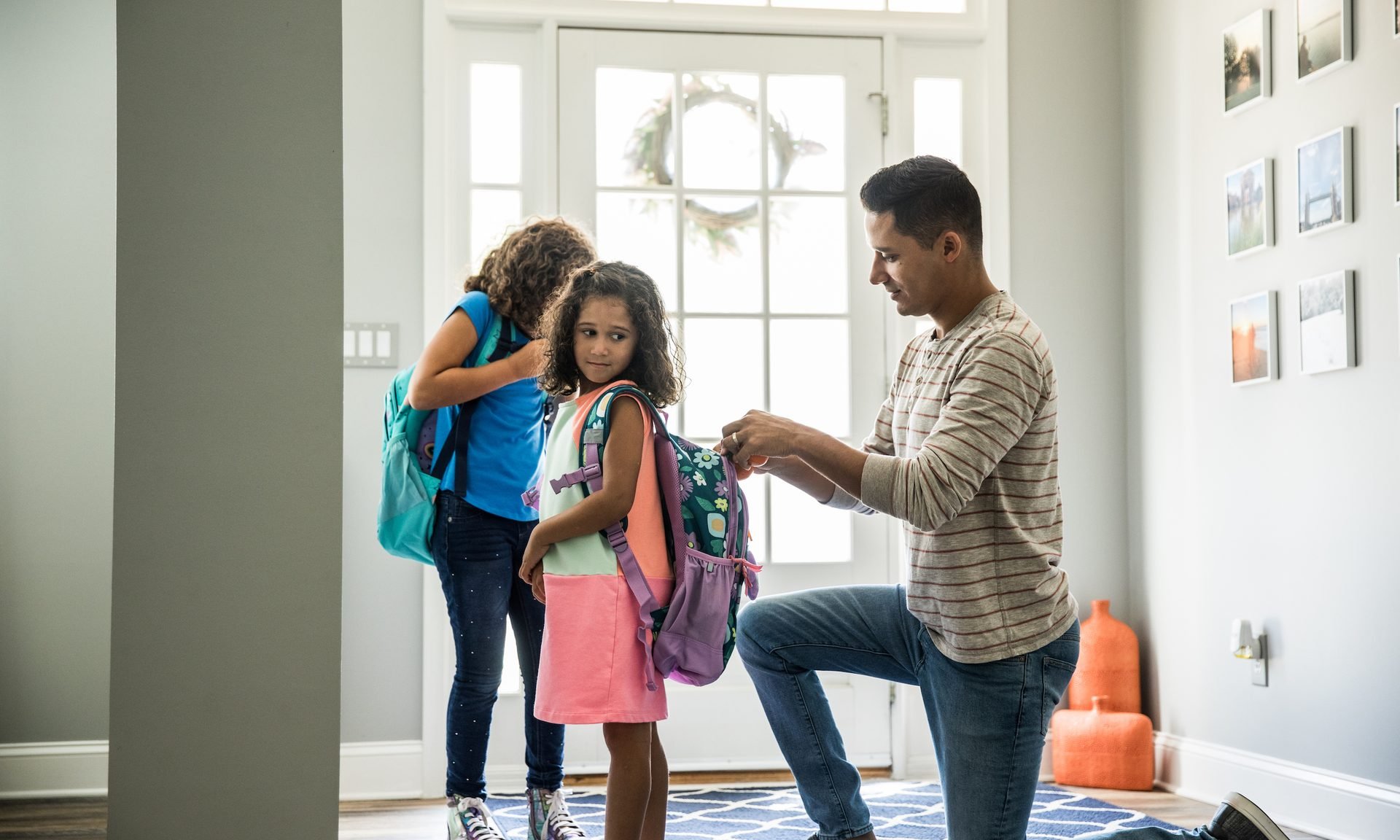How to Master Thrifty Back-to-School Shopping
Monitoring sales and combining forces with other parents are a couple of ways to make things more economical.

Many, or all, of the products featured on this page are from our advertising partners who compensate us when you take certain actions on our website or click to take an action on their website. However, this does not influence our evaluations. Our opinions are our own. Here is a list of our partners and here's how we make money.
It’s that time again: back to school, and back-to-school expenses.
NerdWallet's 2025 back-to-school survey, conducted online by the Harris Poll in May, found that parents who plan to do back-to-school shopping this year expect to spend $741, on average.
Popular money-saving approaches mentioned by back-to-school shoppers included shopping sales (52%), using coupons (34%) and seeking out free options for school supplies (25%).
You can save money while outfitting your student by shopping savvy and leaning on your community. Here’s how.
Audit what's already in your house
Supplies with some life in them may have come home with your child at the end of last year. Some may even be unused.
Check closets and last year's backpack for leftovers from last year — and while you're at it, see if that backpack is good for another year of use.
Check the sales, spread out the shopping
Watch for weekly ads from your favorite stores and check them for deals on the school supplies, clothes and electronics your student needs. Check online, too.
Rather than make one massive shopping trip, selectively pick up on-sale items in any given week. Although it takes a while to assemble everything on the list, this approach spreads out the hit to your budget.
Use technology to save money
Think about using cash-back apps like Rakuten or Ibotta to boost your savings.
If you’re shopping online, take advantage of tools like Google Shopping to compare prices. You can also use browser extensions like the Camelizer, which gives information on Amazon pricing, to spot whether you’re getting a good deal.
More stories like this? Yes, please!
Find exclusive content, rich storytelling, first-person accounts, trending news and original reporting in the NerdWallet app.
Keep sales tax holidays in mind
Several states have tax holidays that coincide with back-to-school shopping time. Depending on your state, that could translate to as much as 7% savings on your purchase.
See if your state has a sales tax holiday, and check details such as what purchases qualify and in what amount.
If the holiday comes before your school releases its supply lists, try buying according to last year's list or stick to key items you're certain they'll need. Hang on to receipts just in case you need to exchange or return something.
Be strategic about clothing purchases
One pair of everyday shoes, new gym shoes and a new outfit or two may be enough to get the year started. Let older kids get a sense of what's in fashion during the first few weeks of school, then shop. That delay guards against summer purchases they later decide aren't what they wanted.
As the year progresses, you can shop Black Friday deals (which start in October) or Veterans Day sales to fill in what's needed.
Reuse, recycle
You may be able to source school supplies, clothes, jackets and more from thrift stores or resale sites like swap.com.
Check out your local Buy Nothing Project group on Facebook or the BuyNothing app. Members request and give away things for free.
Similar groups can be found on Facebook Marketplace, Nextdoor and Craigslist.
Buy in bulk, then split costs
The parents of your kid’s classmates may want to join forces to buy certain supplies. It may be cheaper to buy in bulk and split those supplies up across families for a lower per-unit cost.
This approach works well for classroom supplies like tissues, plastic storage bags and hand sanitizer — especially if a parent has a Costco or Sam's Club membership.

Reach out to community organizations
Check whether your public library, local community center or place of worship is leading a back-to-school supply drive.
As school gets closer, contact the school office or your student's teacher. They may be able to suggest sources for discounted supplies or let you know which items on the supply list can be brought to school later. For example, it's unlikely the classroom needs 30 boxes of tissues all at once in late summer; the teacher may prefer reinforcements when cold season starts.
Be cautious about debt
The survey found that more than half (58%) of parents planning to do back-to-school shopping this year say they'll use a credit card. Be prepared with strategies for whittling credit card balances back down, such as the debt snowball payoff method.
Only 13% of the 2025 back-to-school shopping parents say they'll probably go into debt to pay for school purchases this year. The popularity of buy now, pay later loans can make that easy to do. These short-term loans may not charge fees or interest, but if you take out several, it could be difficult to stay on top of payments.
Article sources
NerdWallet writers are subject matter authorities who use primary,
trustworthy sources to inform their work, including peer-reviewed
studies, government websites, academic research and interviews with
industry experts. All content is fact-checked for accuracy, timeliness
and relevance. You can learn more about NerdWallet's high
standards for journalism by reading our
editorial guidelines.

